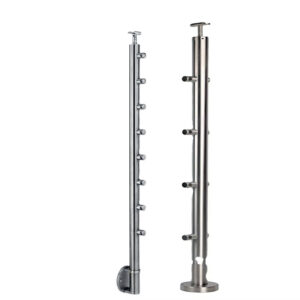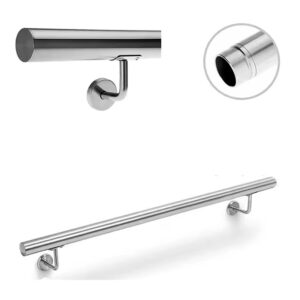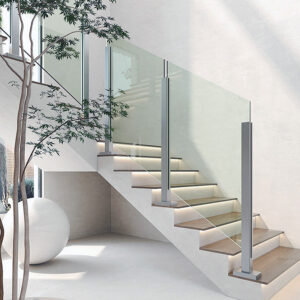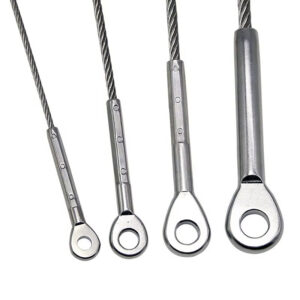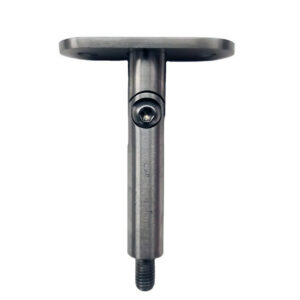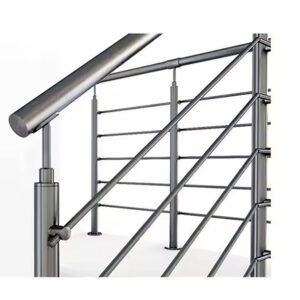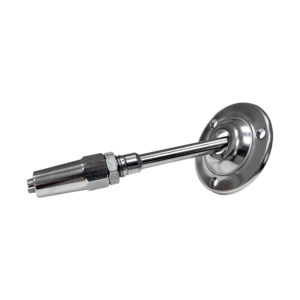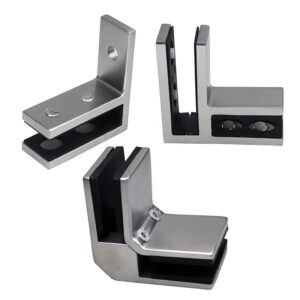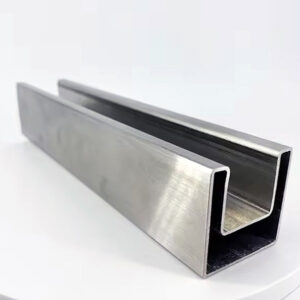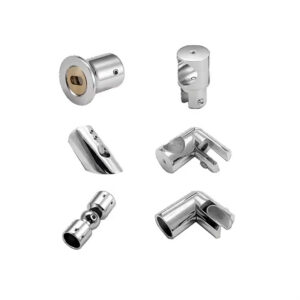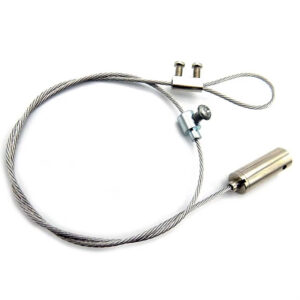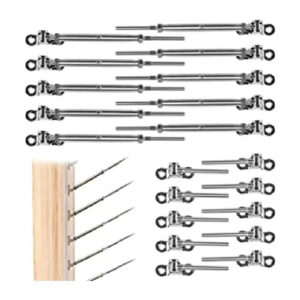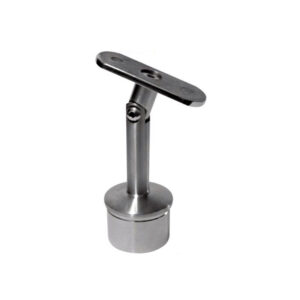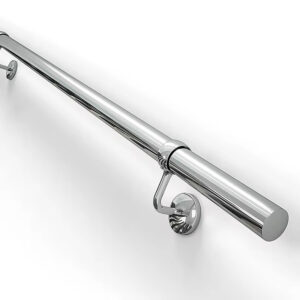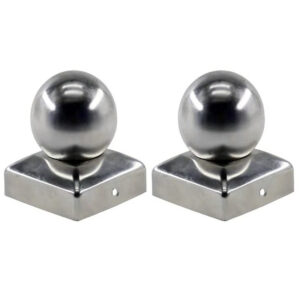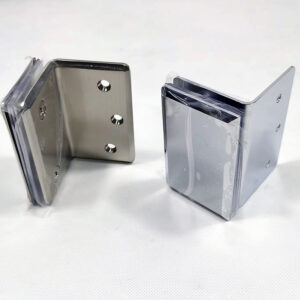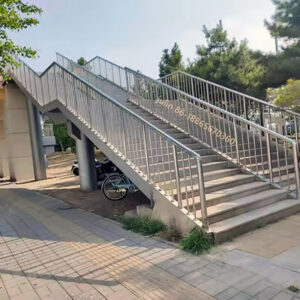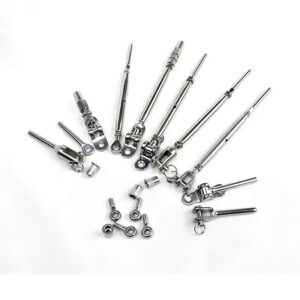Finding reliable masonry anchor hardware that delivers on performance promises while meeting code requirements shouldn’t be a gamble. After 23 years in the stainless steel hardware business, we’ve seen contractors struggle with anchoring systems that fail inspections, create installation delays, and drive up project costs. The solution isn’t just better hardware—it’s complete masonry anchor systems designed for real-world installation efficiency and long-term reliability.
Complete Masonry Anchor Systems That Work
Core Hardware Components
Post Mounting Systems: Heavy-duty base plates, adjustable post anchors, and through-bolt assemblies engineered for concrete, brick, and stone applications. Our 316L stainless steel fabrication ensures corrosion resistance in challenging environments where standard hardware fails.
Wall Mount Brackets: Surface-mounted and embedded anchor systems with load distribution plates. These commercial masonry anchor systems handle both point loads and continuous mounting requirements while simplifying field installation.
Adjustable Hardware: Compensation bolts, leveling plates, and angle-adjustable mounts that accommodate real-world masonry variations. Custom masonry manufacturing capabilities mean we can modify standard components for unique structural requirements.
Specialty Anchors: Chemical-set systems, expansion anchors, and undercut anchors for different masonry types and load requirements. Our precision masonry hardware includes proper embedment depth guides and torque specifications.
Material Performance Reality
| Grade | Applications | Corrosion Resistance | Cost Factor |
|---|---|---|---|
| 304 Stainless | Interior, dry climates | Good | Baseline |
| 316 Stainless | Coastal, industrial | Excellent | +25% |
| 316L Stainless | Marine, chemical exposure | Superior | +40% |
▶ Get Complete Specifications ◀
Surface treatments matter for longevity. Brushed finishes hide minor scratches and maintenance marks. Mirror polish looks impressive initially but shows every fingerprint and scratch. Most contractors choose brushed for practical durability.
System Integration Benefits
Modular design reduces inventory complexity. Standard connection methods mean faster installation with common tools. Pre-engineered load ratings eliminate guesswork during specification. Our 23 years of experience taught us that system compatibility prevents costly field modifications.
Technical Specifications That Matter
Load Capacity Guidelines
| Anchor Type | Concrete psi | Safe Load (lbs) | Installation Time |
|---|---|---|---|
| Through-bolt | 3000+ | 1200-2400 | 15-20 min |
| Expansion | 2500+ | 800-1600 | 10-15 min |
| Chemical-set | 2000+ | 1000-2000 | 30-45 min |
| Undercut | 3000+ | 1500-3000 | 20-30 min |
Installation Requirements
Embedment Depth: Minimum 4x anchor diameter for expansion anchors, 6x diameter for high-load applications. Edge distance requirements: 3x diameter minimum from masonry edges.
Hole Preparation: Carbide-tipped bits only. Hole diameter tolerance ±0.005″ for expansion anchors. Clean holes with compressed air—debris causes installation failures.
Torque Specifications: Follow manufacturer specs exactly. Over-torquing damages masonry, under-torquing reduces capacity. Calibrated torque wrenches prevent field problems.
“Proper anchor installation reduces callback rates by 75% compared to field-improvised solutions.” —Masonry Contractors Association
Real Projects, Real Results
Commercial Applications
Office Complex Railings: 40-story building required 800+ anchor points with strict load requirements. Our marine grade masonry anchors ODM solution provided custom base plates matching architectural drawings. Installation time: 60% faster than field-fabricated alternatives.
Retail Center Barriers: Multi-level shopping center needed vandal-resistant anchoring for protective railings. 316 stainless components handled high-traffic abuse while meeting ADA compliance. Zero maintenance issues after 5 years.
Hospital Infrastructure: Healthcare facility demanded non-magnetic hardware for MRI areas. Specialized austenitic stainless formulation met medical equipment requirements without performance compromise.
Industrial Solutions
Manufacturing Plant Walkways: Chemical processing facility required corrosion-resistant anchoring in aggressive environment. Our precision masonry hardware withstood daily chemical exposure that destroyed previous carbon steel installations.
Warehouse Safety Systems: Distribution center needed fast installation during limited shutdown windows. Modular anchor systems reduced installation time from 3 days to 8 hours per section.
Water Treatment Facilities: Municipal plant required 316L anchoring for chlorine-rich environment. Custom masonry manufacturing provided oversized base plates for uneven concrete surfaces.
▶ Discuss Your Project Requirements ◀
Performance Metrics From Completed Jobs
- Installation time reduction: 40-60% vs. field-fabricated solutions
- Inspection pass rate: 98% first-time approval
- 5-year maintenance costs: 70% lower than carbon steel alternatives
- Load test compliance: 100% meeting or exceeding specified ratings
Installation Support That Actually Helps
Pre-Installation Planning
Site Assessment: Concrete age, strength verification, rebar location, edge conditions. Our engineers review structural drawings and provide anchor layout recommendations based on 23 years of field experience.
Tool Requirements: Standard rotation hammers, carbide bits, torque wrenches, vacuum systems for hole cleaning. No specialized equipment means your crew can handle installation.
Quality Control Checklist:
- Hole depth verification
- Cleaning confirmation
- Torque documentation
- Load test procedures
Installation Reality Check
Most anchor failures happen during installation, not in service. Common problems we help avoid:
- Insufficient hole cleaning (accounts for 40% of failures)
- Wrong bit size or dull carbide tips
- Concrete dust blocking expansion mechanisms
- Over-torquing causing masonry cracking
▶ Get Installation Training Resources ◀
Technical Support When You Need It
Phone support during installation for real-time problem solving. Field visits for complex projects. Load testing assistance and documentation. Our support team includes former contractors who understand project pressures.
Frequently Asked Questions
Q: How do I choose between 304 and 316 stainless for masonry applications?
A: Use 304 for interior or dry climate installations where cost matters. Choose 316 for coastal areas (within 5 miles of salt water), industrial environments with chemical exposure, or anywhere long-term maintenance costs outweigh initial savings. 316L stainless provides maximum corrosion resistance for marine applications.
Q: What’s the real installation time difference between anchor types?
A: Through-bolts fastest but require access to both sides. Expansion anchors balance speed with strength—15 minutes typical. Chemical-set anchors take longer (30-45 minutes cure time) but handle highest loads in marginal concrete conditions.
Q: Can I mix anchor types within the same railing system?
A: Yes, but maintain consistent metallurgy. Don’t mix stainless grades or combine stainless with galvanized hardware—galvanic corrosion accelerates failure. Our modular systems ensure compatible materials throughout.
Q: What’s your inventory support for large projects?
A: We stage inventory for project schedules and provide batch coordination for phased construction. Twenty-three years of experience taught us that delivery timing matters as much as product quality.
Q: How do maintenance requirements compare between grades?
A: 316 stainless requires 70% less maintenance than 304 in corrosive environments. Coastal installations show dramatic differences—316 maintains appearance and strength while 304 develops surface corrosion requiring regular cleaning and eventual replacement.
Q: What code compliance documentation do you provide?
A: Complete test reports, load calculations, material certifications, and installation specifications. Our documentation package supports plan review and inspection processes for IBC, OSHA, and local code requirements.
System Comparison: Making Informed Decisions
| Feature | Standard Hardware | Esang Metal Systems | Premium Alternatives |
|---|---|---|---|
| Material Options | Limited grades | 304/316/316L available | Custom alloys |
| Load Documentation | Basic specs | Complete test data | Engineering reports |
| Installation Support | Manual only | Phone + field support | Full service |
| Lead Times | 2-4 weeks | 1-3 weeks standard | 4-8 weeks |
| Customization | Minimal | Extensive ODM capability | Full custom design |
▶ Connect with Our Engineering Team ◀
Selection Criteria for Different Projects
Budget-Conscious Projects: 304 stainless with standard finishes provides reliable performance for interior applications. Focus on proven designs rather than custom solutions.
Long-Term Value Projects: 316 stainless systems deliver lower total cost of ownership through reduced maintenance and extended service life. Initial 25% premium pays back within 3-5 years.
Demanding Environments: Marine grade masonry anchors in 316L stainless handle the most challenging conditions. Custom engineering ensures proper performance in unique applications.
Our 23 years of manufacturing experience means we understand the balance between performance, cost, and installation reality. Whether you need standard solutions or custom masonry manufacturing capabilities, we provide systems that work as specified, install efficiently, and deliver long-term value.
The masonry anchor hardware market offers many options, but successful projects depend on choosing systems designed for your specific requirements. Consider material grade, installation complexity, maintenance requirements, and total project costs when making decisions. Our team helps contractors, distributors, and engineers specify solutions that perform reliably while meeting budget and schedule requirements.
